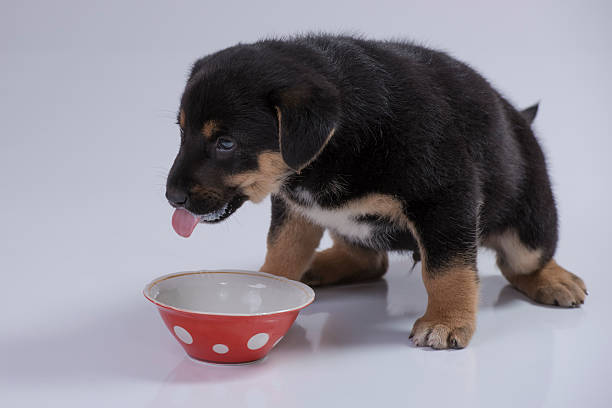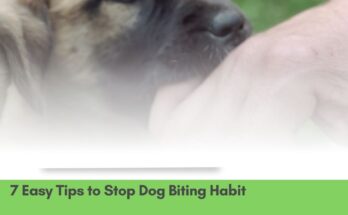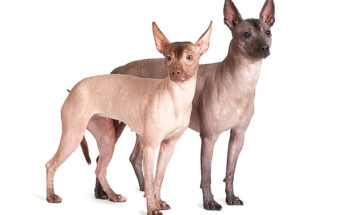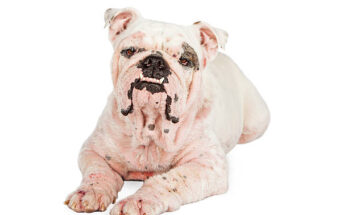Introduction
As a seasoned dog owner for 15 years, I’ve encountered my fair share of challenges when it comes to caring for my furry companions.
One issue that can be particularly concerning is puppy vomiting after eating.
In this article, I’ll share insights based on my experience and offer practical advice on how to address this issue effectively.
15 Reasons Why is Your Puppy Vomiting After Eating
- Overeating can be the Main Reason For Puppy Vomiting After Eating
Puppies, especially those with hearty appetites, may consume too much food too quickly, leading to vomiting shortly after eating.
- Food Allergies or Intolerance Is one Reason For Puppy Vomiting After Eating
Some puppies may have sensitivities to certain ingredients in their food, resulting in digestive upset and vomiting.
- Sudden Diet Changes Is Another Reason For Puppy Vomiting After Eating
Abrupt changes in your puppy’s diet, such as switching to a new brand or type of food, can upset their stomach and trigger vomiting.
- Food Poisoning Reason for Puppy Vomiting After Eating
Consuming spoiled or contaminated food can lead to food poisoning, characterized by vomiting, diarrhea, and other gastrointestinal symptoms.
- Eating Too Quickly
Wolfing down food too quickly can cause puppies to swallow air along with their food, leading to indigestion and vomiting.
- Hunger Pukes
Sometimes, puppies may vomit due to an empty stomach, especially if they haven’t eaten for an extended period, leading to bile-induced vomiting.
Also Read,
- Why is my French Bulldog Crying at Night 10 Reasons
- American Bulldog vs Pitbull – Exact Knowledge of The Differences
- Avoid These Foods for French Bulldog Allergies
- Liver or Kidney Disease
In some cases, underlying medical conditions such as liver or kidney disease can manifest with symptoms such as vomiting after eating.
- Motion Sickness
Some puppies are prone to motion sickness, especially during car rides or other forms of transportation, leading to vomiting.
- Inflammatory Bowel Disease
Chronic inflammation of the gastrointestinal tract, known as inflammatory bowel disease (IBD), can cause vomiting, diarrhea, and other symptoms in puppies.
- Heatstroke
Puppies can quickly become overheated, especially during hot weather or vigorous exercise, leading to vomiting and other signs of heatstroke.
- Dietary Indiscretion
Puppies are curious creatures and may ingest non-food items such as grass, toys, or household objects, leading to vomiting.
- Food Intolerance
Some puppies may have difficulty digesting certain ingredients commonly found in commercial dog food, leading to vomiting and other digestive problems.

- Gastrointestinal Infections
Bacterial, viral, or parasitic infections in the gastrointestinal tract can cause vomiting as the body attempts to rid itself of harmful pathogens.
- Stress or Anxiety for Puppy Vomiting After Eating Food
Puppies may vomit in response to stressors such as loud noises, changes in routine, or unfamiliar environments.
- Foreign Body Ingestion
Puppies may accidentally swallow objects such as toys, bones, or pieces of fabric, which can become lodged in the gastrointestinal tract and cause vomiting.
These reasons highlight the various factors that can contribute to puppy vomiting after eating, emphasizing the importance of identifying the underlying cause and seeking appropriate veterinary care when necessary.
Frequently Asked Questions For Why is Your Puppy Vomiting After Eating
What should I do if my puppy is vomiting after eating?
If your puppy is experiencing vomiting after eating, it’s essential to assess their overall health and behavior.
If the vomiting is mild and isolated, you can try withholding food for a few hours to give their stomach time to settle.
However, if the vomiting persists, is accompanied by other symptoms such as diarrhea or lethargy, or if you suspect they’ve ingested something toxic, seek veterinary attention promptly.
Can food allergies or intolerance cause puppy vomiting after eating?
Yes, food allergies or intolerance can contribute to digestive upset and vomiting in puppies.
If your puppy consistently vomits after eating certain foods, it may indicate a sensitivity to specific ingredients.
Consider switching to a hypoallergenic or limited-ingredient diet and consult with your veterinarian for further guidance.
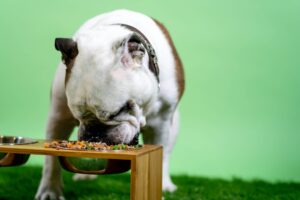
How can I prevent my puppy from vomiting after eating?
Preventing puppy vomiting after eating begins with establishing a consistent feeding routine and providing a balanced diet suitable for their age and breed.
Avoid sudden changes in diet, feed smaller, more frequent meals to prevent overeating, and supervise your puppy to prevent ingestion of non-food items or toxic substances.
Additionally, consider consulting with your veterinarian to rule out any underlying health issues contributing to the vomiting.
What are the signs of gastrointestinal infections in puppies?
Gastrointestinal infections in puppies can present with symptoms such as vomiting, diarrhea, abdominal pain, lethargy, and loss of appetite.
If you suspect your puppy has a gastrointestinal infection, it’s essential to monitor their symptoms closely and seek veterinary attention promptly, as these infections can quickly become severe if left untreated.
Are there any home remedies for treating puppy vomiting after eating?
While mild cases of puppy vomiting may resolve on their own with temporary fasting and reintroduction of a bland diet, it’s essential to exercise caution when considering home remedies.
Some remedies, such as giving your puppy certain human foods or over-the-counter medications, can exacerbate their symptoms or cause further harm.
Always consult with your veterinarian before attempting any home remedies to ensure they are safe and appropriate for your puppy’s specific situation.
Conclusion
Dealing with puppy vomiting after eating can be concerning, but with patience, vigilance, and proper care, you can help your furry friend overcome this issue and maintain their overall health and well-being.
By understanding the causes, implementing appropriate treatment measures, and adopting preventive strategies, you can ensure that your puppy stays happy, healthy, and free from digestive woes.
Also Read,

